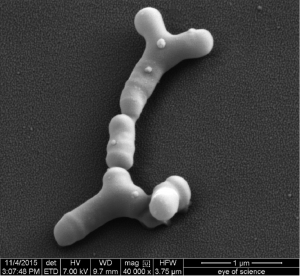Bifidobacteria are among the first colonizers of the newborn gut in healthy breast fed infants. Bifidobacterium breve (next to B. longum and B. bifidum) is abundantly present in the gut microbiota of healthy infants, and has been subject of genetic studies with the aim to unravel the molecular mechanisms underlying its beneficial activity.
Thanks to our collaboration with Prof. D. van Sinderen at University College Cork we generated an updated view on strain diversity of Bifidobacterium breve.
The study demonstrated that representatives of B. breve exhibit considerable genomic diversity, though such diversity seems to be balanced by the need of bacteria to protect themselves against “foreign DNA”,
such as that borne by bacteriophages in the competitive environment of the gut.
The findings of the methylome analysis coupled with the most complete identification of Restriction/Modification systems in B. breve, represents an important advance in the genetic accessibility. This will allow researchers to study the probiotic mechanisms of bifidobacteria at the molecular level. The high scientific level of the paper is indicated by the high impact factor of the journal (IF=10.162), and the co-authorship of a Nobel prize winner, Sir Richard J. Roberts, from New England Biolabs.

“The information generated will ultimately result in an improved understanding of the genetics and health-promoting potential of members of Bifidobacterium breve,”
said Jolanda LAMBERT, Senior Scientist of Gut Biology Microbiology in Danone Research & Innovation.
The full article can be accessed here.